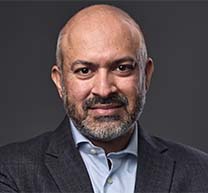GEC auf der Jahreskonferenz Responsible Business 2024
NACHHALTIGE ELEKTRONIK IN DER ENTWICKLUNG: VORBEREITUNG DER LIEFERKETTE AUF DIE EPEAT-KRITERIEN DER NÄCHSTEN GENERATION
November 21, 2024, 9 - 12 Uhr PST
Das EPEAT-Umweltzeichen ist seit fast 20 Jahren ein wichtiges Signal auf dem Technologiemarkt, das Käufer, Elektronikmarken und andere Interessengruppen auf eine gemeinsame Definition dessen, was ein "nachhaltiges" Produkt bedeutet, einstimmt. Diese Definition entwickelt sich nach jahrelangen Bemühungen mehrerer Interessengruppen, die EPEAT-Kriterien zu überarbeiten und einen neuen Maßstab zu schaffen, um die wachsenden Erwartungen in diesem Bereich zu erfüllen. Die nächste Generation der EPEAT-Kriterien wird nicht nur die Messlatte für die globale Gemeinschaft höher legen, sondern auch deutlich mehr Interaktion mit den Partnern in der Lieferkette erfordern.
Nehmen Sie an der Jahreskonferenz Responsible Business 2024 des Global Electronics Council (GEC) teil, um an einer interaktiven Veranstaltung über die wichtige Rolle der Partner in der Lieferkette bei der Entwicklung nachhaltiger Produkte teilzunehmen, einschließlich der Rolle der Endmontage- und Komponentenhersteller bei der Erfüllung der bevorstehenden Überarbeitungen der EPEAT-Umweltzeichenstandards.
Erkunden Sie diese überarbeiteten Kriterien und die spezifischen Anforderungen an die Lieferanten, die sich auf vier wesentliche Bereiche beziehen, darunter:
- Verantwortungsvolle Lieferkette
- Klima
- Zirkularität
- Chemikalien
Darüber hinaus werden wir darauf eingehen, wie die Instrumente und Ressourcen der Responsible Business Alliance (RBA) und der Responsible Minerals Initiative (RMI) die Erfüllung dieser Kriterien beschleunigen können. Als Teilnehmer erhalten Sie Einblicke in die Ressourcen, Programme und Beratungsdienste, die Ihr Unternehmen und Ihre Lieferanten dabei unterstützen, "EPEAT Ready" zu werden. Lassen Sie sich diese 3-stündige Partnerveranstaltung nicht entgehen - die Teilnahme ist kostenlos, und für Erfrischungen ist gesorgt!
Ausgewählte Redner

Balan Shanmuganathan

Cassie Gruber

Christy Jung
Führender Programm-Manager, HP

Bob Mitchell
Geschäftsführender Direktor, Global Electronics Council

Patricia Dillon
Vizepräsident, Kriterien und Kategorieentwicklung, Global Electronics Council

Kaushik Ramakrishnan
Vizepräsident, Globale Marktentwicklung und Strategie, Global Electronics Council
Agenda der Veranstaltung
21. November 2024 - Alle Zeiten unten sind in lokaler Pacific Standard Time
9:00 - 10:00 Uhr - Die nächste Phase von EPEAT: Die Ziele der GEC für nachhaltige Auswirkungen und die aktualisierten EPEAT-Kriterien
Seien Sie dabei, wenn die GEC-Führungskräfte darüber berichten, wie sich das EPEAT-Umweltzeichen weiterentwickelt, um die Abdeckung von Themen der materiellen Nachhaltigkeit zu erweitern und das Engagement in der Lieferkette durch die Umsetzung der nächsten Generation der EPEAT-Kriterien zu stärken. Die Sitzung wird einen ganzheitlichen Überblick über die neu überarbeiteten Kriterien geben und kritische Fortschritte in den Bereichen verantwortungsvolle Lieferketten, Reduzierung der Klimaauswirkungen, Chemikaliensicherheit und zirkuläres Produktdesign hervorheben. In einem anschließenden Kamingespräch wird erörtert, wie diese sich entwickelnden Standards die Zukunft der nachhaltigen Elektronik gestalten und messbare Veränderungen in der gesamten Branche vorantreiben werden.
10:00 Uhr - 11:00 Uhr - Perspektiven der Lieferkette: Ein tiefer Einblick in die überarbeiteten EPEAT-Kriterien
Lernen Sie in dieser Sitzung die aktualisierten EPEAT-Kriterien aus der Sicht eines Lieferanten kennen. Wir werden die Komplexität der aktualisierten Kriterien durchgehen und praktische Einblicke geben, wie sich diese Änderungen auf jede Stufe der Lieferkette auswirken. In unserem zweiten Kamingespräch wird ein Branchenexperte auf die Herausforderungen und Chancen eingehen, die diese Kriterien für die Komponentenherstellung mit sich bringen, und den Teilnehmern helfen, den vollen Umfang der Auswirkungen von EPEAT auf die Lieferanten zu verstehen.
11:00 Uhr - 11:30 Uhr - GEC-Lieferantenengagement: Ressourcen und Programme zur Beschleunigung der Bereitschaft der Lieferkette
Informieren Sie sich über die Werkzeuge und Ressourcen, die GEC anbietet, um Lieferanten bei der Erfüllung der überarbeiteten EPEAT-Kriterien zu unterstützen. Diese Sitzung bietet einen Überblick über die kommenden Ressourcen, Programme und Beratungsdienste zur Schaffung einer "EPEAT Ready"-Lieferkette. Unser abschließender Kamingespräch bietet offene Einblicke in die Einbindung von Lieferanten und zeigt Wege auf, die Zusammenarbeit zu fördern und sinnvolle Ergebnisse zu erzielen.
11:30 - 12:00 Uhr - Runde Tische mit GEC
Diese Sitzung ist als offenes Forum konzipiert und bietet den Teilnehmern Sprechstunden und Einzelgespräche mit GEC-Mitarbeitern, um spezifische Fragen aus früheren Sitzungen zu klären. Ganz gleich, ob Sie Klarheit über die Kriterien, Lieferantenressourcen oder Hinweise zu den bevorstehenden Änderungen der Kriterien benötigen, dieses offene Forum bietet Ihnen die persönliche Unterstützung, die Sie benötigen, um die nächste Generation der EPEAT-Kriterien sicher zu meistern.
Mehr über den Global Electronics Council
GEC arbeitet daran, den systemischen Wandel zu beschleunigen, um bis 2050 eine zu 100 % nachhaltige Elektronikindustrie zu schaffen. Dies bedeutet Netto-Null-Emissionen, Null-Abfall, Wasserneutralität und minimale nachteilige Auswirkungen auf die Umwelt und die Menschenrechte während des gesamten Lebenszyklus von Produkten und Dienstleistungen.
Als Verwalter des EPEAT-Umweltzeichens setzen wir den globalen Standard für nachhaltige Elektronik. Durch unsere weltweit führende Akkreditierung, unser Engagement und unsere Führungsrolle befähigen wir Elektronikhersteller und -käufer, ihre Nachhaltigkeitsziele zu erreichen. Wir gestalten die Beziehung der Welt zu Technologie und natürlichen Ressourcen neu und ermöglichen die Umwandlung von Elektronik von einer eskalierenden ökologischen und sozialen Herausforderung in eine befähigende, nachhaltige Lösung.
Mehr über die Responsible Business Alliance
Die Responsible Business Alliance ist die weltweit größte Industriekoalition, die sich für ein verantwortungsvolles Geschäftsgebaren in globalen Lieferketten einsetzt.
Die 2004 von einer Gruppe führender Elektronikunternehmen gegründete Responsible Business Alliance (RBA), ehemals Electronic Industry Citizenship Coalition (EICC), ist ein gemeinnütziger Zusammenschluss von Elektronik-, Einzelhandels-, Automobil- und Spielzeugunternehmen, die sich für die Rechte und das Wohlergehen von Arbeitnehmern und Gemeinden weltweit einsetzen, die von globalen Lieferketten betroffen sind. Die RBA-Mitglieder verpflichten sich zur Einhaltung eines gemeinsamen Verhaltenskodex und nutzen eine Reihe von RBA-Schulungs- und Bewertungsinstrumenten, um die kontinuierliche Verbesserung der sozialen, ökologischen und ethischen Verantwortung ihrer Lieferketten zu unterstützen. Neben den RBA-Mitgliedern sind auch Tausende von Unternehmen, die Tier-1-Lieferanten der Mitglieder sind, verpflichtet, den RBA-Verhaltenskodex umzusetzen. Besuchen Sie https://www.responsiblebusiness.org/about/rba/ für weitere Informationen.

Patricia Dillon
Vizepräsident, Kriterien und Kategorieentwicklung, Global Electronics Council
Patty beaufsichtigt den Prozess der Kriterienentwicklung, die Strategie und das Team der GEC für neue und bestehende EPEAT-Produktkategorien sowie andere GEC-Initiativen. Sie leitet die Initiative zur Umwandlung des GEC-Kriterienentwicklungsprozesses in einen effizienteren, flexibleren und wissenschaftlich orientierten Prozess, der ein breites Spektrum von Interessengruppen und Experten einbezieht. Ihr Team ist verantwortlich für die laufende Überwachung und Entwicklung neuer Produktkategorien, die Vorbereitung der State of Sustainability Research zu den Nachhaltigkeitsauswirkungen von Elektronikgeräten und Strategien zur Minderung der Auswirkungen, die Verwaltung von Multi-Stakeholder-Prozessen, die Nachhaltigkeitskriterien für die Implementierung in das EPEAT-Register erstellen und pflegen, sowie die Entwicklung des GEC-Umweltvorteilsrechners für Elektronikgeräte. Sie kam 2016 zu GEC und bringt ein tiefes Verständnis der konsensbasierten Kriterienentwicklung und eine lange Erfahrung mit EPEAT mit. Sie war von Anfang an an den Standards beteiligt, die die Grundlage der EPEAT bilden, zunächst als Interessenvertreterin, die zur Teilnahme an der Entwicklung des ursprünglichen Computerstandards eingeladen wurde, und später in Führungspositionen für die Standards für Fernseher, Server und Photovoltaik.
Patty verfügt über mehr als dreißig Jahre Erfahrung in den Bereichen Forschung, Moderation und Programmmanagement bei der Entwicklung von Standards, Umweltpolitik und Geschäftsstrategien, wobei sie sich intensiv mit Elektronik, Kunststoffen und Verpackungen beschäftigt hat. Bevor sie zu GEC kam, war Patty eine unabhängige Beraterin, eine Teilzeit-Programmmanagerin beim Northeast Recycling Council, wo sie die State Electronics Challenge und das Toxics in Packaging Clearinghouse leitete, und eine wissenschaftliche Mitarbeiterin an der Tufts University. Patty hat einen Master-Abschluss in Bauingenieurwesen mit Schwerpunkt Umwelttechnik von der Tufts University und einen Bachelor-Abschluss in Biologie von der Tufts University.

Bob Mitchell
Geschäftsführender Direktor, Global Electronics Council
Als Chief Executive Officer des Global Electronics Council ist Bob für die Führung und strategische Aufsicht der Organisation verantwortlich, um deren Vision und Mission zu erfüllen. Er verfügt über einen fundierten Hintergrund in den Bereichen Wirtschaft und Menschenrechte, ökologische Nachhaltigkeit, Non-Profit-Management sowie unternehmerische Nachhaltigkeit und Programme.
Als ehemaliger Vizepräsident für Menschenrechte und Umwelt bei der Responsible Business Alliance (RBA) leitete er die Strategieentwicklung und Umsetzung von Programmen für verantwortungsbewusstes Geschäftsgebaren in einem branchenübergreifenden Umfeld mit mehreren Interessengruppen. In dieser Funktion war er für die Einführung und den Start bedeutender Bemühungen in Bereichen wie der Sorgfaltspflicht bei Zwangsarbeit, der Dekarbonisierung von Lieferketten, der Kreislaufwirtschaft und der Widerstandsfähigkeit von Lieferketten verantwortlich.
Er ist ein Veteran von Hewlett Packard und Hewlett Packard Enterprise und arbeitet seit über anderthalb Jahrzehnten im Bereich der Nachhaltigkeit. Vor seiner Tätigkeit bei der RBA war er Director, Global Social & Environmental Responsibility bei Hewlett Packard Enterprise und leitete ein Team von Fachleuten, das sich unter anderem mit Menschenrechten, Umweltverantwortung für Produkte, Verantwortung in der Lieferkette und Konfliktmineralien beschäftigte. Bob war auch Mitglied des RBA-Vorstands und des Beirats von Social Accountability International (SAI). Er hat einen MBA-Abschluss von der University of Arizona und einen Bachelor-Abschluss von der University of Virginia.

Kaushik Ramakrishnan
Vizepräsident, Globale Marktentwicklung und Strategie, Global Electronics Council
Als Senior Director, Strategic Growth, treibt Kaushik Ramakrishnan die langfristige Wirkung und Wachstumsstrategie von GEC voran. Als Mitglied des Senior Leadership Teams arbeitet er eng mit dem CEO und der GEC-Führung zusammen, um weltweit wachstumsstarke Möglichkeiten zu konzipieren, zu entwickeln und zu verwirklichen, um die Mission und Vision der Organisation zu erfüllen.
Kaushik verfügt über mehr als 20 Jahre Erfahrung in der Privatwirtschaft, bei Start-ups und gemeinnützigen Organisationen auf vier Kontinenten. Er ist ein Nachhaltigkeitsexperte, der sich intensiv mit Nachhaltigkeitsstrategien von Unternehmen, nachhaltigen Lieferketten und Klimafinanzierung beschäftigt hat. Bevor er zu GEC kam, hatte Kaushik Führungspositionen bei Sustainalytics, Rainforest Alliance, IDH - the Sustainable Trade Initiative, Ericsson, Infosys und Pula Advisors inne.
Kaushik hat einen MBA-Abschluss der Indian School of Business, Hyderabad, und einen Bachelor of Engineering, Computer Science, der Visvesvaraya Technological University. Er lebt derzeit in Gent, Belgien.

Balan Shanmuganathan
Senior Engineering Director für Nachhaltigkeit, Seagate Technology
Balan Shanmuganathan ist der Senior Engineering Director für Nachhaltigkeit bei Seagate Technology. Er verfügt über mehr als 30 Jahre Erfahrung in den Bereichen Umwelt, Gesundheit und Sicherheit sowie Nachhaltigkeit. In seiner derzeitigen Position bei Seagate ist Balan für das gesamte Nachhaltigkeitsprogramm des Unternehmens verantwortlich. In den letzten 5 Jahren hat er an Seagates Bemühungen um Kreislaufwirtschaft gearbeitet, indem er mit Kunden, Recyclingunternehmen, Partnern in der Lieferkette und Zertifizierungsstellen zusammenarbeitete, um Seagates Bemühungen um Kreislaufwirtschaft voranzutreiben.

Cassie Gruber
Direktor für Sustainability Business Solutions, Jabil
Cassie Gruber arbeitet eng mit Kunden und Segmenten auf der ganzen Welt zusammen und kultiviert die Kreislaufwirtschaftsstrategien von Jabil. Als erfahrene Führungskraft in der Elektronikrecycling- und Nachhaltigkeitsbranche kam Cassie Gruber 2018 zu Jabil, um als Fachexpertin für die Kreislaufwirtschaft grüne innovative Technologien zu fördern. Sie unterstützt die Kunden von Jabil in allen Branchen bei ihren Recycling- und Kreislaufwirtschaftszielen und -initiativen, und zwar über die gesamte umgekehrte Lieferkette, in der Produkte und Materialien wiederverwendet und recycelt werden.
Nachdem sie ein Jahrzehnt lang Kunst und Philosophie studiert hatte, änderte sich Cassies beruflicher Werdegang dramatisch, als sie Partnerin eines kleinen Elektroschrottunternehmens in Buffalo, New York, wurde. Anschließend verbrachte Cassie zwei Jahrzehnte in der Elektronik-Recycling-Branche mit dem Schwerpunkt auf ökologischer Nachhaltigkeit und Compliance. Mit ihrer großen Erfahrung und ihrem Engagement für Nachhaltigkeit hat Cassie Jabil dabei geholfen, sich zu einer datengesteuerten, zirkulären Wertschöpfungskette weiterzuentwickeln.

Christy Jung
Führender Programm-Manager, HP
Christy Jung ist Lead Program Manager bei HP und spezialisiert auf Product Compliance und Nachhaltigkeit. Mit ihrer Erfahrung in der Entwicklung von Strategien für Umweltzeichen, Nachhaltigkeitsinitiativen und der Einhaltung von Vorschriften leitet sie ein regionenübergreifendes Team, das sich auf die Förderung der nachhaltigen Produktentwicklung konzentriert und Lösungen zur Dekarbonisierung mit Lieferanten vorantreibt. Sie vertritt HP als stimmberechtigtes Mitglied im EPEAT Technical Committee für das Modul Sustainable Use of Resources. Christy hat einen B.S. in Supply Chain Management von der Arizona State University und macht einen M.S. in Energiepolitik und Klima von der Johns Hopkins University.

